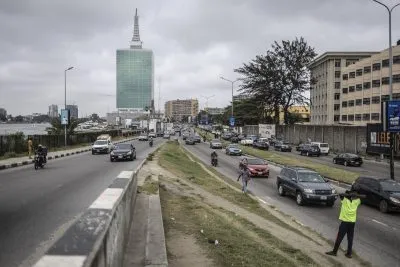As Kilamba Kiaxi in Angola has shown, other forms of new African city need to be developed with the local markets and local needs in mind.
The most ambitious is the vision of the smart city, which is connected to the concept of the Internet of Everything, which would see the connection of all devices embedded with chips, including cars, fridges, washing machines, medical instruments, air conditioning and heating systems.
This allows for remote monitoring, collation of information and much, much more. For instance, fridges could automatically order food when they are running out; road sensors could inform the authorities when repairs are needed; irrigation could occur without any need for human intervention; and medication for patients could be adjusted according to that patient’s requirements, without the need for a nurse to doctor to intervene.
The implications of this will take years to become apparent, but a smart city is one that incorporates as much of this technology from the outset. For instance, more trains on a light rail system could be deployed according to passenger volumes, while traffic lights across an entire city could work together to allow the most efficient movement of vehicles according to traffic flows at that time. Similarly, streetlights can only come on when they are needed by pedestrians or vehicles.
Lagos State governor Babatunde Raji Fashola said: “The need to deploy innovative approaches that address civic challenges in Lagos State has never been greater, and technology is the key to the future.”
Despite the city’s many problems, it has been mooted as a centre of smart technology and plans for a cashless society have already been drawn up. Lagos was chosen as a test bed for IBM’s Smarter Cities Challenge, which involves the IT company working alongside city authorities to find ways of improving urban functions. In the case of Lagos, it has identified the city’s waterways as a great option for public transport if much better information on real time traffic flows is provided.
The chief scientist at IBM’s Africa Research Lab, Uyi Stewart, says: “There is already ample data available in Lagos. Cell phones, social media, traffic cameras, global positioning systems, banks, and retail stores are all producing terabytes of big data loaded with potential insight about how the city works and how its citizens move around within it.”
The collation of that data could improve the movement of traffic on both water and land, helping to tackle the city’s infamous traffic jams.
Does smart equal urban?
These are all very good ideas but it is worth remembering the developmental state of much of the continent. Two thirds of the population of sub-Saharan Africa has no access to electricity at home, a lower rate than anywhere else in the developing world.
With the notable exception of South Africa, it is also more expensive than in other comparable regions, while internet access, whether wireless, fixed line, mobile or satellite, is required to make the smart city a reality.
Economic growth and activity does centre on cities and so it is natural that investment should be greater here than elsewhere. However, the concept of the smart city risks dramatically increasing the economic and educational chasm that already separates African cities from surrounding rural areas.
This is not to say that the continent should not aim high. It has already shown remarkable adaptability in other areas, such as leapfrogging telecoms technologies and moving straight into the mobile age.
Yet a smart economy may be one that does not require intellectual and economic activity to be concentrated in small areas. Encouraging economic development over a wider area by bringing the whole continent online may enable African states to leapfrog urbanisation and all of the problems that come with it.
Even here, smart solutions can play a role. Prepayment electricity meters are already being used in some parts of the continent, including in Ghana, Nigeria and Angola. These enable power companies to ensure payment for the electricity they supply, helping to fund electrification and generation projects.
However, smart meters can take this a step further. They are now being introduced in many Western countries and allow customers to see exactly how much electricity each appliance uses and how the price of electricity changes during the course of a day.
They also allow utilities to track illegal connections, improve load distribution and encourage off-peak use. Such meters are likely to be the first step towards the smart African city of the future.
Want to continue reading? Subscribe today.
You've read all your free articles for this month! Subscribe now to enjoy full access to our content.
Digital Monthly
£8.00 / month
Receive full unlimited access to our articles, opinions, podcasts and more.
Digital Yearly
£70.00 / year
Our best value offer - save £26 and gain access to all of our digital content for an entire year!
 Sign in with Google
Sign in with Google 


